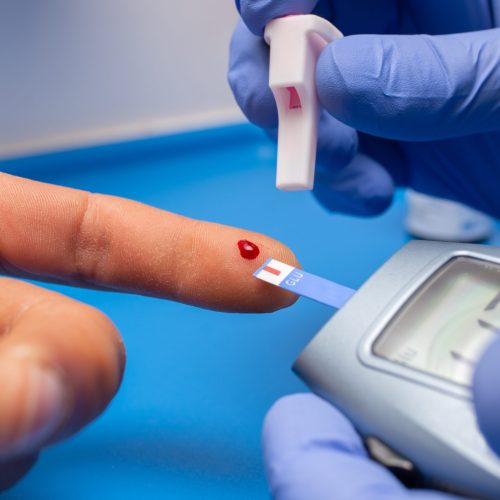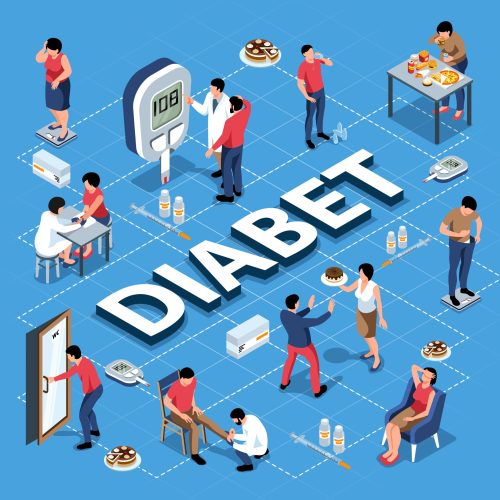Diabetic’s Dabba
Emotional Impact of Type 1 Diabetes
Living with type 1 diabetes can be a challenging journey that extends far beyond the physical aspects of the condition. From the moment of diagnosis, individuals with type 1 diabetes often find themselves navigating a complex web of emotions, ranging from fear and anxiety to frustration and loneliness. Understanding the emotional impact of type 1 diabetes is crucial in providing holistic support and care to those affected.
Understanding Type 1 Diabetes
Type 1 diabetes is a chronic autoimmune condition characterized by the body's inability to produce insulin. This vital hormone is responsible for regulating blood sugar levels, and its deficiency can lead to serious health complications if left untreated. Symptoms of type 1 diabetes may include excessive thirst, frequent urination, unexplained weight loss, and fatigue. Management of the condition typically involves daily insulin injections or the use of an insulin pump, along with close monitoring of blood sugar levels.

Emotional Toll of Living with Type 1 Diabetes
The emotional toll of living with type 1 diabetes cannot be overstated. The constant need to monitor blood sugar levels, calculate insulin doses, and make adjustments to diet and lifestyle can create a significant amount of stress and anxiety. Individuals with type 1 diabetes often fear the potential consequences of high or low blood sugar levels, such as diabetic ketoacidosis or hypoglycemia, which can be life-threatening if not properly managed.
Moreover, the need for strict adherence to medication regimens and dietary restrictions can impact one's quality of life and sense of freedom. Many individuals with type 1 diabetes struggle with feelings of isolation and frustration, as they navigate the challenges of living with a chronic condition that requires constant attention and vigilance.

Challenges Faced by Individuals with Type 1 Diabetes
Beyond the physical challenges, individuals with type 1 diabetes also face a myriad of social and emotional obstacles. The stigma surrounding diabetes, fueled by misconceptions and misinformation, can lead to feelings of shame and embarrassment. Additionally, the financial burden of managing the condition, including the cost of insulin, supplies, and healthcare services, can create additional stress and strain on individuals and families.
Coping with the daily uncertainties of life with type 1 diabetes can take a toll on one's mental health and emotional well-being. Many individuals experience feelings of anxiety, depression, and burnout as they strive to balance the demands of the condition with their personal and professional lives.

Support Systems for Individuals with Type 1 Diabetes
Despite the challenges they face, individuals with type 1 diabetes are not alone. Building a strong support network is essential for coping with the emotional impact of the condition. Family and friends play a crucial role in providing love, understanding, and encouragement to those affected. Healthcare professionals, including endocrinologists, diabetes educators, and mental health professionals, can offer valuable guidance and support in managing the physical and emotional aspects of type 1 diabetes.
In addition to traditional support systems, online communities and support groups provide a valuable source of connection and solidarity for individuals with type 1 diabetes. These virtual spaces offer a platform for sharing experiences, exchanging information, and offering mutual support and encouragement.

Coping Mechanisms and Strategies
While living with type 1 diabetes presents its fair share of challenges, there are numerous coping mechanisms and strategies that can help individuals manage the emotional impact of the condition. Practicing mindfulness and stress-reduction techniques, such as meditation, deep breathing exercises, and yoga, can help alleviate feelings of anxiety and promote a sense of calm and well-being.
It's also important for individuals with type 1 diabetes to prioritize self-care and seek professional help when needed. Therapy and counseling can provide a safe and supportive environment for exploring and addressing the emotional challenges associated with the condition. Finding strength in community and shared experiences can also be incredibly empowering, reminding individuals that they are not alone in their journey.
Promoting Awareness and Understanding
In addition to supporting individuals with type 1 diabetes on an individual level, it's also important to promote awareness and understanding of the condition on a broader scale. Advocacy efforts aimed at combating stigma and dispelling myths and misconceptions surrounding diabetes can help create a more supportive and inclusive society for those affected.
Education initiatives, both in schools and in the community, can help raise awareness about the signs, symptoms, and management of type 1 diabetes, empowering individuals to take control of their health and well-being. By fostering empathy and compassion, we can create a more compassionate and supportive environment for individuals living with type 1 diabetes.
